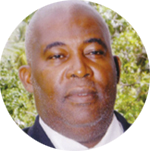
WELCOME students to the Open School for the third and final term. I also wish to welcome students to continuation of the lesson in the Open School on Preventing Behaviour Problems: What Works. The school is open to parents, guardians, teachers, students and members of the public. This is the thirteenth in a series of lessons which is done in the Open School every two weeks. It is my hope that students will acquire knowledge and skills which will enable them to gain a better understanding of behaviour problems and ways of preventing those behaviour problems.
At the end of the lesson, students will be able to (a) explain, in a simple sentence, two behaviour problems; (b) students will be able to list two ways of preventing behaviour problems in the local community.
A large number of behaviour problems pervade our St. Lucian society today. The behaviour problems have become so problematic that the government now has to turn to the Regional Security Forces (RSS) to assist in reducing acts of aggression and violence in our society. Many of the problems which are being experienced, are initiated by young people at home, in school and in our wider community.
In this article I will provide information on preventing behaviour problems that works.
Parents should continually monitor their children’s behaviour. And this is a serious responsibility.
Parents should know where their children and adolescents are, what they are doing and with whom, and provide appropriate supervision. These questions are especially important during the teenage years, when youth become more independent and spend more time away from home.
Indeed, parents should develop simple techniques for monitoring their children and adolescents. I remember a programme on Radio Caribbean hosted by Marcellus Mann Miller entitled “Do you know where your children are?”. This was a very good programme and I am wondering how many parents actually listened to that programme.
I should indicate here that a child should be given increasing autonomy during adolescence. At the same time parents should make informed choices in how much independence they grant their children and under what conditions.
Parents should encourage children to make friends with others who are not involved in problem behaviours. Children know their peers who have behaviour problems in class and in the communities. Indeed, those are the children who will have negative influence on your children. I often hear parents and members of the community say ‘boys will be boys’, there are certain behaviours that boys would demonstrate. We have to be very careful with those comments. Boys will be always be boys when they demonstrate positive behaviours. But that’s not guaranteed!
Parents and teachers too, should avoid creating unsupervised groups of children with behaviour problems. Children may learn problem behaviour from each other and encourage each other to behave inappropriately. This is what is often referred to as peer influence.
Now some children would not be duly influenced if they are properly trained at home. But parents should not ‘bank’ on that! Those groups should be monitored closely to prevent youths from encouraging problem behaviour in the peers.
I was born and grew up in the George Charles’ Boulevard. And I can tell you the many games I played with my peers that were so enjoyable in the late fifties and throughout the sixties. And I still remember that period!
Parents and teachers should create enjoyable activities for children and teenagers that involve adult supervision. Supervised recreational activities allow children to interact with their peers but also keep children away from situations that may tempt them to try cigarettes, alcohol, drugs or risky sexual behaviours.
Limit the amount of time children spend after school is over. Now as a school boy I remember playing cricket and football after school. In fact we organised our cricket team long before dismissal, and as soon as the bell rang for dismissal, we were already pitching our wicket and spinning our coin to know which team was going to bat first. Indeed, according to the Mighty Sparrow, “School days were happy, happy days”.
I don’t know how happy it is for our students today, but I had some good fun during my school days. And when I became a teacher and principal, I made school rewarding for the children entrusted to my care.
Since I am an educator by profession, I would like to remain for a little while in school communities.
School communities should create clear rules that prohibit supplying or selling of tobacco, alcohol, illegal drugs or weapons to children and adolescents.
Schools should create clear policies that state that the school does not permit the use of illegal substances or engages in aggressive behaviour.
Schools should enforce rules that restrict supplying drugs, alcohol, tobacco and weapons to children. But similarly, schools have to make sure that children do not have access to drugs, alcohol, tobacco and weapons.
Indeed, there is still much to be spoken about that I wish to continue with the topic in my next lesson.
Now two questions for you: (1) Name at least two illegal substances that children may encounter at home or at school.
(2) Name three ways in which parents and teachers can prevent children and students from getting involved in drugs or illegal substances.
See you again in two weeks’ time.





